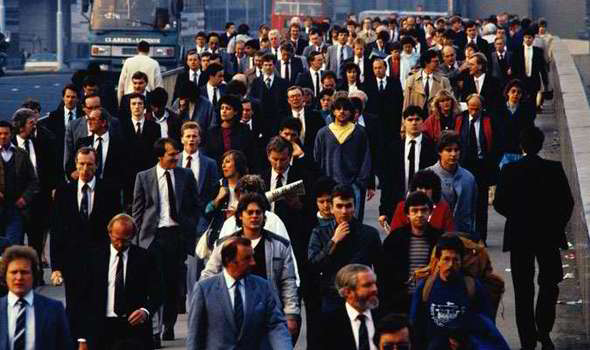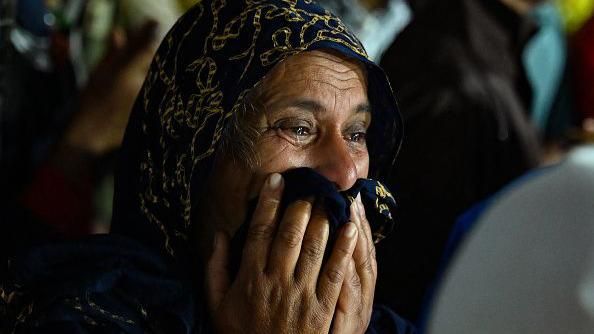Britain should hold a referendum to decide how many EU migrants should be allowed to come to the UK, a leading MP said.
The call was made by Keith Vaz, chairman of the Home Affairs Select Committee, as restrictions on Romanians and Bulgarians arriving to find jobs were lifted.
Speaking from Luton Airport, which is one of a number of airports where flights from Bucharest and Sofia will land, Mr Vaz said: “This is an issue that does need to be put to the British people, so we don’t get this kind of drama and people rushing around thinking hundreds of thousands of people are going to arrive at Luton on the first day.”
“We do need to look at this sensibly.”
“It needs to be part of negotiations for a reformed EU, because freedom of movement is very important.”
“It’s one of the cornerstones of the EU and we need to have a proper discussion, and that means at the end of the day the British people have to make that decision.”
Many people arriving on a flight from Romania on Wednesday morning already worked in the UK, but one of those coming to the country for the first time was Victor Spiresau.
The 30-year-old who said he hoped to earn more in the UK, but was not planning on settling.
He initially planned to wash cars, but wanted to find work in the building industry.
Mr Spiresau, who has left his wife behind in their small village, said: “I don’t come to rob your country. I come to work and then go home.”
“I don’t want to stay here. I want to renovate my home and to make a good life in Romania because it’s much easier to live in Romania because it’s not expensive.”
Also on the flight was Silviu Todea, who was returning to London after visiting Romania over the holidays.
He said he believed the majority of his fellow Romanians would want to work.
Mr Todea, 27, who has a job in marketing in the capital, said: “Everyone has their own opinions especially with their past experiences with other nations, but I think it won’t be so bad.”
Meanwhile, an adviser to the Romanian Prime Minister said that job seekers from his country will not ‘invade’ Britain, despite the ending of curbs.
Senator Damian Draghici, who is from a Roma family, accused those warning there would be a tide of Romanians and Bulgarians taking advantage of relaxed work restrictions of covering up failed policies at home.
He said: “I believe it’s more of a political game or a way to blow things out of proportion, I don’t think Romanians are going to invade England.”

The outspoken politician added: “They are the voices of political extremists trying to cover up for unsatisfied public policies.”
The UK imposed the seven-year restrictions on Romania and Bulgaria after they joined the EU in 2007, only allowing citizens a visa if they were self-employed, had a job offer, or were given a specialist role.
But from January 1, Romanians and Bulgarians are entitled to come to the UK for work and will be able to claim benefits like other EU citizens.
It has prompted fears of an influx of immigrants and David Cameron moved to counter concerns with a series of measures including banning migrants from claiming benefits for three months and making foreigners pay for NHS treatment.
Mr Draghici also had a message for Mr Cameron, wishing him a Happy New Year and issuing an invite to him. He said: “Why don’t you come over?”
The Conservative leader of Westminster Council, Philippa Roe, has claimed the arrival of Bulgarians and Romanians would add to the burden on council taxpayers.
She said central London had a problem with Roma “causing a massive amount of disruption and low-level crime”.
But in Bucharest’s Berceni market, as stallholders prepared for the last shoppers of 2013, there was no real interest from anyone in spending 2014 working in the UK.
One man working on a fruit stall said: “My country is more beautiful, so not for the moment, but it’s a nice idea.”
A woman market trader said: ” I make my money here, I have my relatives and my friends here, I feel at home here, I would never go.”
A middle-aged man said: “Myself, I’d never consider it, I’m happy here. If somebody wants to work then they’ll find it anywhere, you don’t need to go to Britain.”
Mihai Fertig is the chief operating officer of the Romanian arm of the biggest coaching group in Europe.

He already runs three services a week to the UK, but he’s not expecting a rush for seats to London.
He said: “No not really, we aren’t enthusiastic. I think the main part of the people who want to work abroad are already there.”
“We expect, because of the opening of the market, that the bookings will increase maybe 10%.”
Most people in Romania do not understand what all the fuss is about in the UK, and most doubt the predictions that tens of thousands will flock to Britain seeking work.
They are more concerned with the so called “brain drain” of young qualified Romanians, especially doctors and nurses, that have already left to work in other countries since their homeland joined the EU seven years ago.
Analysts in Romania estimate there are between three and four million Romanians already working abroad, a small proportion of around 250,000 in the UK.
A University College London report in November found that immigrants had contributed £25bn to the UK economy between 2000 and 2011 – significantly more than they had claimed in handouts.
They were also, it said, 45 percent less likely to receive benefits than British people.










